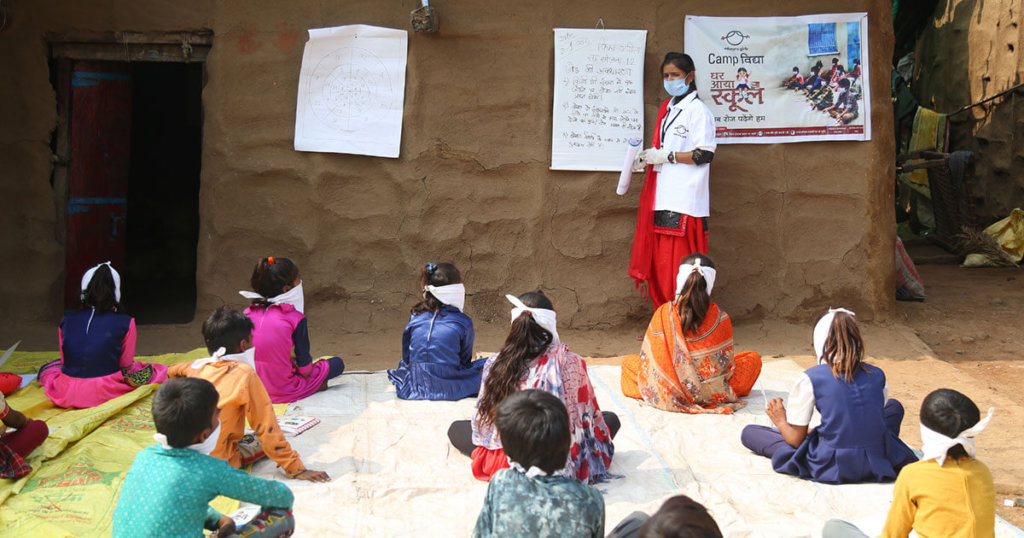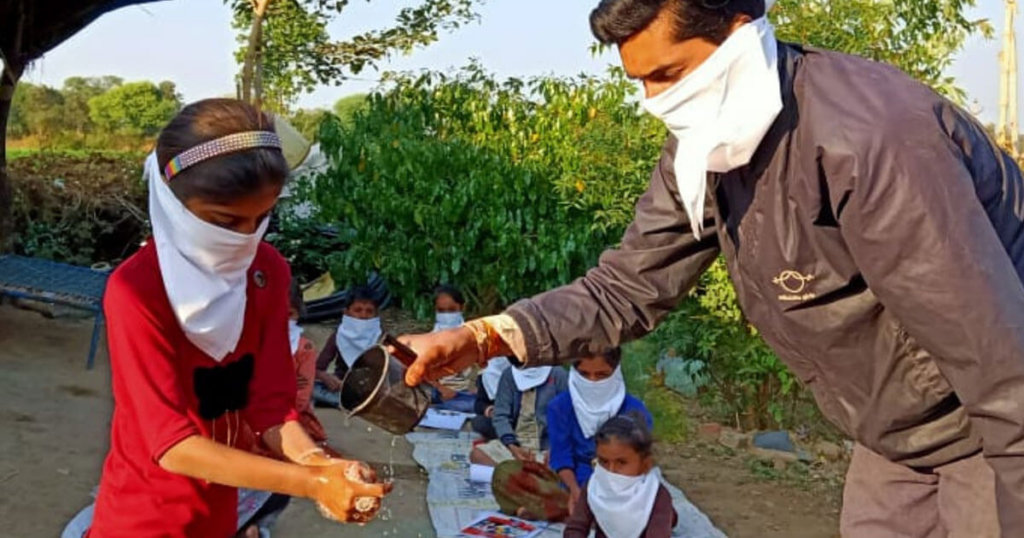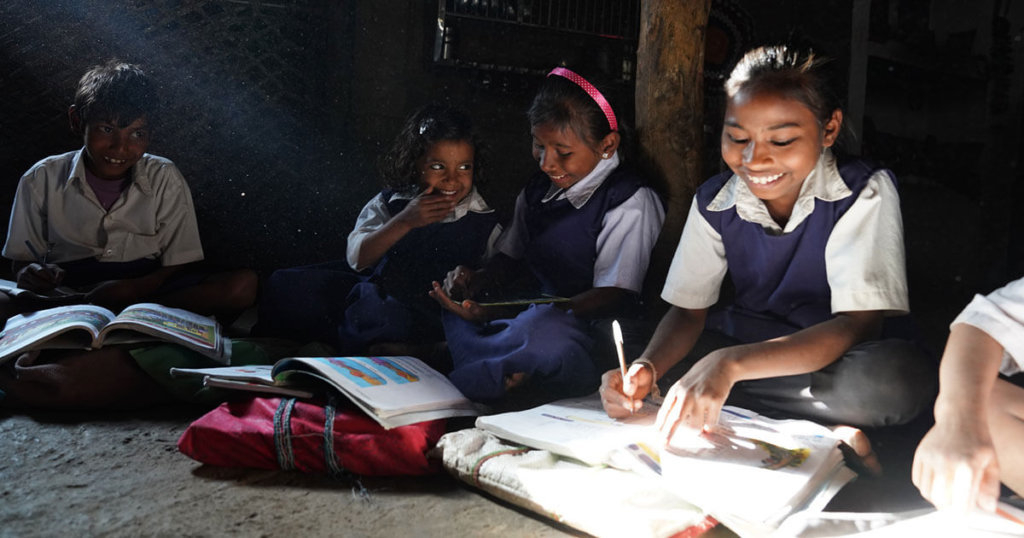Have you ever been told by your mother not to touch things around the house when you are on your period? Did your grandmother ever tell you not to put a foot in the temple area or enter the kitchen when you are menstruating? Now imagine your mother suggesting you to miss school or even worse, forcing you to drop out of school once you start menstruating. Doesn’t make sense, right? But unfortunately, this is a reality for many young girls especially in the rural and backward communities across the world. For them, the beginning of menstruation becomes the beginning of many restrictions.
If your mind is still getting jittery to find logic to what you just read, then read this blog till the end to understand why the beginning of menstruation means the ending of school for many unfortunate girls.
What the Beginning of Menstruation Means for a 13-Year-Old Girl From a Backward Community
In many rural communities, because of the taboos and myths around periods, often girls have never heard of menstruation before their first period. This beginning of a completely natural process becomes confusing and traumatic for many girls.
When they are introduced to this natural process, they are made to believe that it is impure and dirty. With time, periods just become a thing that the girls dread to have each month and pray to pass through without suffering too much. The beginning of this cycle brings fear instead of understanding.
Menstruation for a 13-year-old belonging to backward communities also means marriage. Once the girl starts menstruating, many believe it marks the beginning of her readiness for motherhood. In such communities, where girls are considered burdens, they are often awaited to hit puberty so they can be married off.

How Periods Affect Girls’ Education?
Once the girl is considered old enough to get married, her education automatically takes a back seat. The beginning of menstruation commonly signals the end of schooling for many girls. When parents go out looking for a suitable groom for their daughter, in no time the book in the hands of a girl is replaced by the broom.
In some progressive households where girls are allowed to continue their education, a lack of proper knowledge and sanitary facilities becomes a big hurdle. The beginning of every menstrual cycle brings discomfort, long travel challenges, and inadequate school sanitation facilities, making it difficult for girls to attend school regularly.
In rural areas, children often travel long distances to attend school. At some places, they even cross a river or hike a mountain to reach the school. Menstruation affects the school attendance of girl children. Experiencing menstrual pain and discomfort is one of the causes of girls’ low attendance and low participation in class. Also because of the lack of unsanitary facilities, girls are left with no option but to stay at home.
Slowly, missing school days and dropping out of school because of periods also makes them more vulnerable to evils like child marriage and getting pregnant at a younger age.
Why Is It Important For Girls To Continue School Even After Menstruation?

Education is every child’s right and without education, the myths around menstruation will continue to rob opportunities from girls.
Schools create a safe space to learn and comprehend a matter like menstruation which is very intimate and important to girls. A classroom allows a girl child to ask freely about a period and understand their own bodies. Right education makes girls comfortable with the fact that periods are natural and normal. A supportive environment in school can also encourage a lot of girls to break the myths around periods in their families and communities.
Schools not only teach girls about menstruation but also help create a dialogue and normalize the concept of menstruation for the boys. This common perspective of looking at menstruation as a natural and healthy process, helps girls to free themselves from the shame attached to periods.
Let us look at some things that can help girls manage their periods safely and get the education they deserve.
- Awareness Around Menstruation & Menstrual Activities
The first step toward making girls ‘period-ready’ is raising awareness about the beginning of menstruation and educating them on menstrual health.
According to WaterAid, lack of water, basic sanitation, and hygiene means are the fifth biggest reason to kill women around the world. Unavailability of clean toilets is another.
Learning about menstrual hygiene management helps ensure cleanliness. Most of the females get dangerous infections during periods, because of their lack of knowledge. Knowing what product or material to use, when to change, facilitates girls in maintaining good hygiene during periods.
Issues like lack of awareness, availability, and quality of napkins, regular supply, water supply, disposal of napkins, and family support need urgent attention for the promotion of menstrual hygiene. These issues play an evident role, as many school-going girls drop their further education because of such unattended problems.
- Accessibility To Menstrual Products
In backward communities, girls and women often use dry leaves, sand, sack, or anything or everything that might help absorb the blood flow. Using rash material or unhygienic clothes also puts them at the risk of getting infections and attracting life-taking diseases. Besides, the discomfort and shame that they feel each month can’t be imagined by many of us.
In such a scenario girls can’t be blamed if they prefer staying at home and miss school. Hence, one of the things that we need to ensure for our girls is the accessibility of sanitary pads or menstrual cups. They can also be taught to make reusable sanitary pads at home if they can’t afford the ones available in the market.
- Building Separate & Hygienic Toilets In Schools
Many times girls prefer to skip school during periods also because either there are unhygienic toilets in school or no toilets at all. Even if they have sanitary products, managing the beginning of their menstrual cycle becomes difficult without clean facilities.
Even when girls have access to menstrual products, managing periods at school often becomes a challenge. A lot of schools in developing countries like Africa do not have access to water and sanitation facilities. When girls are menstruating, they need access to a water point and a place where they can dispose of their pads. Lack of separate and hygienic toilets for girls is also a big reason for girls to miss multiple days of school each term during their menstruation cycles.
Hence, it is not only important to ensure separate toilets for girls at schools, it is imperative to ensure they are hygienic as well to save girl children from attracting any infections from unsanitary places.

Let’s Normalise Periods & Give Girls A Shot At A Brighter Future!
Every girl has the Right to Education and the beginning of menstruation should never be the beginning of her educational struggles. has the power to transform her future and pull her family out of poverty – if only she is given a chance.
Let’s break menstrual stigma together and ensure that the beginning of periods does not end a girl’s dream of education.
Educate Girls is supporting girls in the most backward regions of Rajasthan, Madhya Pradesh, and Uttar Pradesh of India to enroll in schools.
To ensure that girls do not drop out of school, and complete their schooling, we also do local and state level partnerships with school administration, government, and volunteers to provide young girls the access to the right knowledge about menstruation and also to make sanitary products available to them.
Let’s together change the perceptions and break stigmas surrounding menstruation.
To support more girls to continue their education and complete their schooling, come forward to donate for girls’ education.


